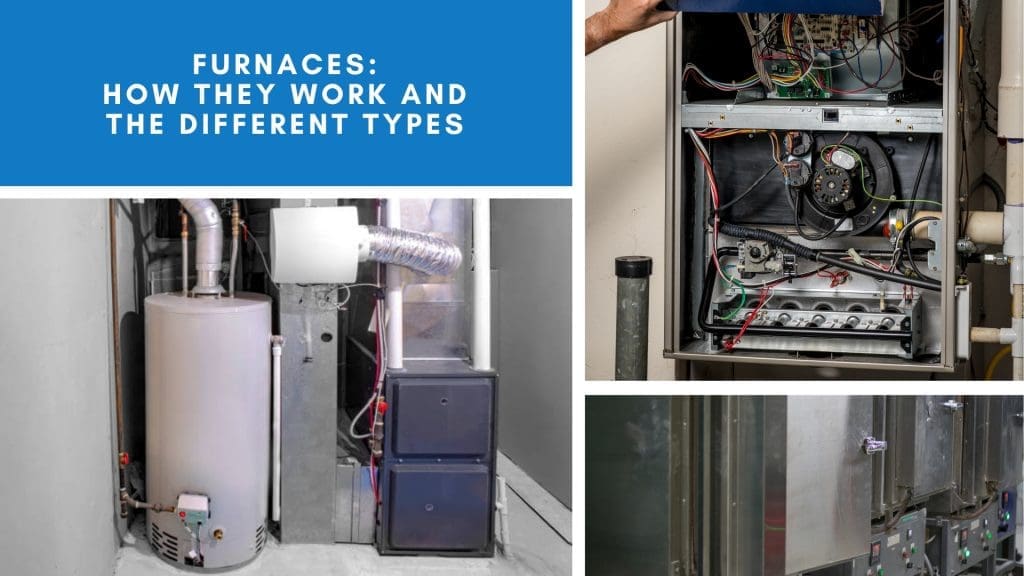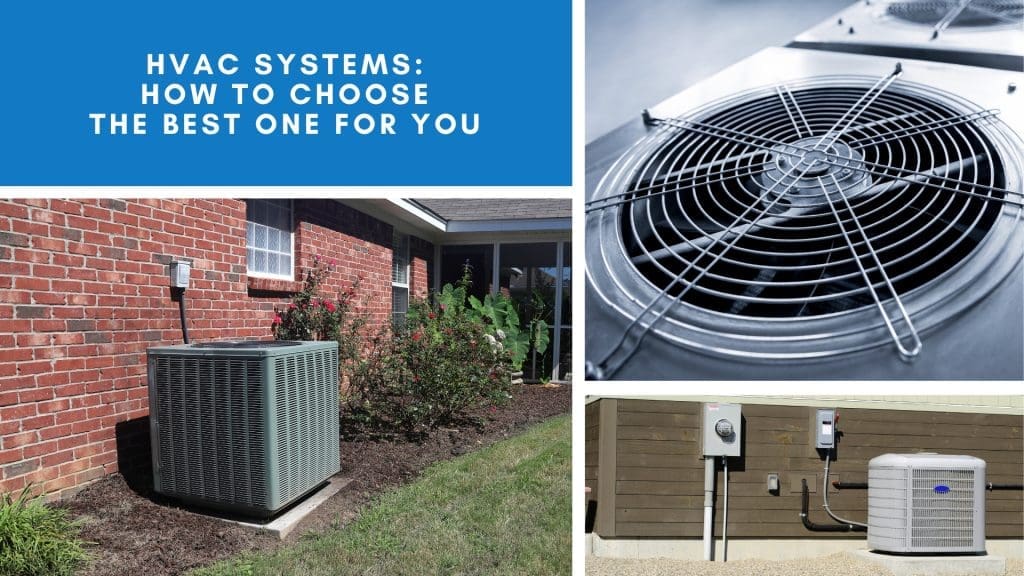TL;DR Summary for Those in a Hurry:
- Maintenance tips for your air filter help ensure your HVAC system runs efficiently, improves indoor air quality, and reduces energy costs.
- Regularly checking and replacing or cleaning filters prevents dust and debris buildup that can strain your system.
- Choosing the right filter type and inspecting it monthly makes it easier to catch issues early and maintain consistent airflow.
- Simple upkeep like vacuuming vents and keeping return grills clean supports the filter’s performance.
- Proper filter maintenance can extend HVAC lifespan and promote healthier home air year-round.
Air filters play a crucial role in maintaining the quality of air inside your home or office. As an HVAC professional and owner of LC Heating and Air Conditioning in Hollywood, I understand the importance of clean air for your comfort and health. Whether you’re a stay-at-home mom juggling daily tasks, a small business owner striving for customer satisfaction, or someone working from home needing a reliable HVAC system, Maintenance Tips for Your Air Filter can make a big difference in system performance and air quality. In this article, I’ll share some practical tips to help you keep your air filter in top condition. And remember, if you need a professional touch, feel free to contact us at (818) 858-7080.
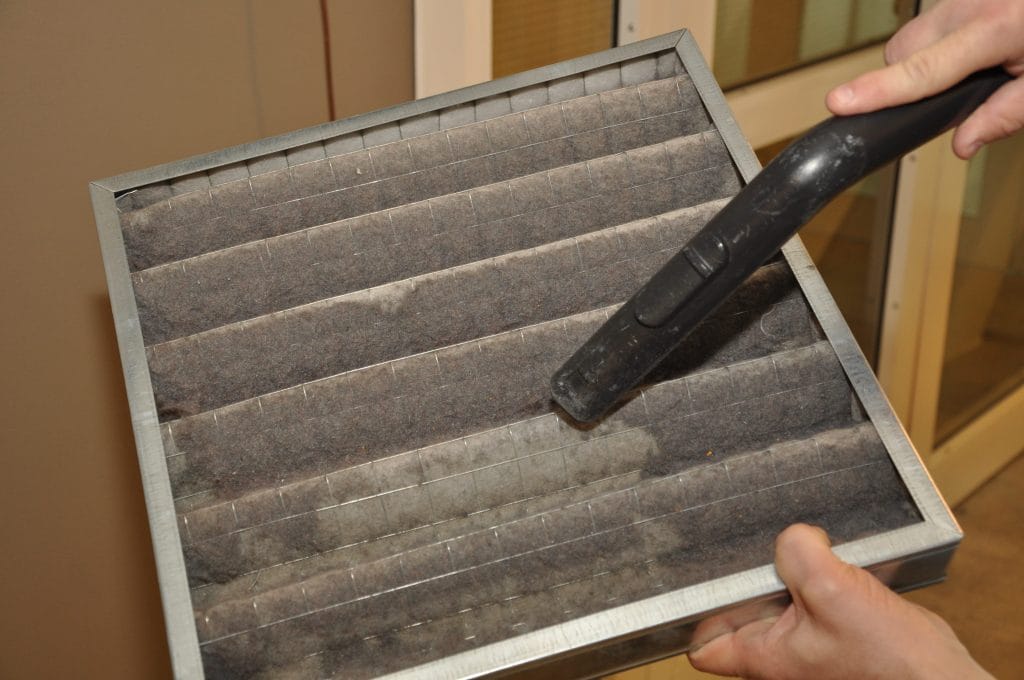
Air filters are essential components of any HVAC system. They trap dust, allergens, and other particles, ensuring the air you breathe is clean and safe. Over time, these filters can become clogged, reducing their efficiency and affecting the overall performance of your system. Regular maintenance is key to keeping your filters in good shape and ensuring your HVAC system runs smoothly.
Why Clean Air Filters Matter: Benefits, How They Work & Common Issues
Benefits of Clean Air Filters
Clean air filters are more than just a necessity for health—they are a cornerstone of energy efficiency. They help your HVAC system work optimally, which can lead to reduced energy consumption and lower utility bills. Moreover, clean filters ensure that your system maintains consistent airflow, which is crucial for keeping your home or office comfortable.
Another significant benefit of clean air filters is their ability to prolong the life of your HVAC system. When air filters are clogged, the system must work harder to maintain the desired temperature. This increased strain can lead to wear and tear, potentially shortening the lifespan of your HVAC unit. By maintaining clean filters, you can avoid unnecessary repairs and extend the life of your system.
Clean air filters also have a positive impact on indoor air quality. They trap pollutants and allergens that could otherwise circulate throughout your space. For those with allergies or asthma, clean filters can make a noticeable difference in reducing symptoms and improving overall well-being.
How Air Filters Work
Air filters function by capturing particles from the air as it passes through the filter material. The effectiveness of an air filter is measured by its Minimum Efficiency Reporting Value (MERV) rating, which ranges from 1 to 20. The higher the MERV rating, the more particles the filter can capture.
Filters with higher MERV ratings, such as HEPA filters, are capable of capturing smaller particles, including pollen, pet dander, and even some bacteria and viruses. However, higher-rated filters can also restrict airflow more than lower-rated ones, so it’s essential to choose a filter that balances filtration efficiency with airflow needs.
The material used in air filters varies. Some are made from fiberglass, while others use pleated paper or cloth. Each type has its advantages and is suited to different environments. Understanding how these materials work can help you choose the right filter for your specific needs, ensuring optimal performance and air quality.
Common Air Filter Issues
One common issue with air filters is clogging. As filters trap particles, they can become blocked, reducing airflow and system efficiency. This is why regular inspection and maintenance are crucial. Clogged filters can lead to higher energy bills and even cause system malfunctions if not addressed promptly.
Another issue is improper installation. If a filter is not installed correctly, it can allow unfiltered air to bypass the filter altogether, defeating its purpose. It’s important to ensure that filters are fitted snugly in their holders and that the airflow arrows on the filter align with the direction of airflow in your system.
Lastly, using the wrong type of filter for your HVAC system can cause problems. Filters with too high a MERV rating can restrict airflow too much for some systems, leading to inefficiency and potential damage. Consulting your HVAC system’s manual or a professional can help you choose the correct filter type and MERV rating.
Types of Air Filters
There are various types of air filters available, each with its own set of benefits. Understanding the differences can help you choose the right filter for your needs.
HEPA Filters
High-Efficiency Particulate Air (HEPA) filters are known for their ability to trap 99.97% of particles as small as 0.3 microns. These are ideal for individuals with allergies or respiratory issues. HEPA filters are often used in environments requiring stringent air quality, such as hospitals and laboratories.
HEPA filters are highly effective in capturing airborne particles, including dust mites, pet dander, and pollen, making them an excellent choice for homes with allergy sufferers. Their dense filter media ensures that even the smallest particles are trapped, improving indoor air quality significantly.
However, due to their high filtration capability, HEPA filters can restrict airflow more than other types of filters. It’s essential to ensure that your HVAC system can handle this restriction without compromising performance. Consulting with an HVAC professional can help determine if a HEPA filter is suitable for your system.
Purifier Filters
Purifier filters are designed to work with air purifiers, enhancing their ability to remove pollutants from the air. These filters often incorporate activated carbon, which is effective at removing odors and volatile organic compounds (VOCs) from the air.
Activated carbon filters are particularly beneficial in homes with smokers or strong cooking odors, as they can neutralize these smells, leaving the air fresher. They are also effective at capturing some gases and chemicals, providing an additional layer of air purification.
While purifier filters are excellent for improving air quality, they should be used in conjunction with a primary HVAC filter for optimal results. Regular replacement of purifier filters is necessary to maintain their effectiveness, as saturated carbon loses its ability to absorb pollutants over time.
Air Cleaner Filters
Similar to purifier filters, air cleaner filters are used in devices specifically designed to clean the air in your home or office. These filters are often part of standalone units that can be moved from room to room, providing localized air cleaning.
Air cleaner filters vary in their filtration capabilities, with some models incorporating multi-stage filtration systems. These may include a pre-filter for capturing larger particles, a HEPA filter for smaller particulates, and an activated carbon filter for odors and gases.
Portable air cleaners are an excellent option for individuals looking to improve air quality in specific areas, such as bedrooms or offices. They offer flexibility and can be used in conjunction with your central HVAC system to provide comprehensive air purification throughout your space.
When to Replace Your Air Filter
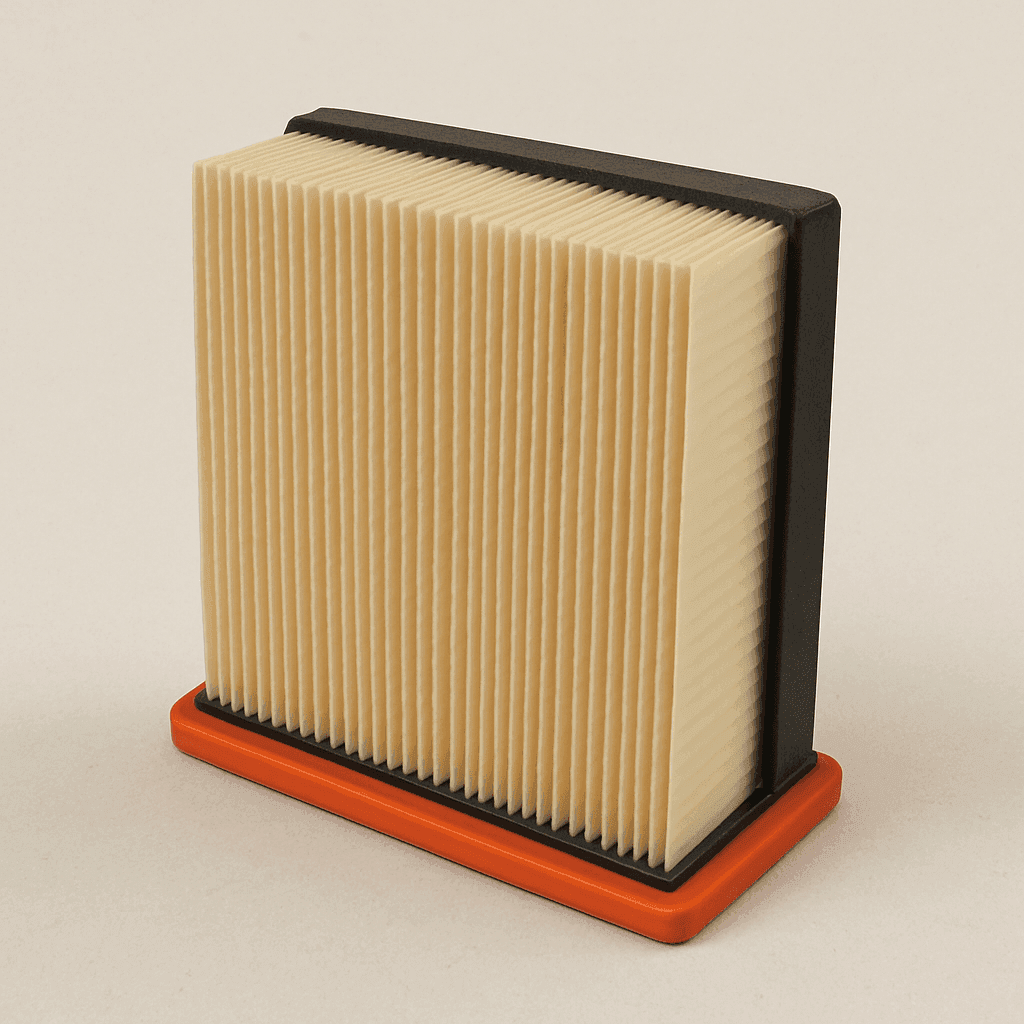
One of the most common questions I receive is, “How often should I replace my air filter?” The answer depends on several factors, including the type of filter you’re using and your specific environment. However, a general rule of thumb is to replace your filter every 1-3 months.
Factors Affecting Replacement Frequency
Several factors can influence how often you need to replace your air filter. The type of filter you use is a significant factor; for example, HEPA filters may last longer than standard fiberglass filters due to their higher capacity for holding particles.
Environmental factors also play a crucial role. Homes with pets or smokers may require more frequent filter changes due to the increased presence of hair, dander, and smoke particles. Similarly, if you live in an area with high pollen counts or dust, your filter may need to be replaced more often to maintain optimal air quality.
Another factor to consider is the usage of your HVAC system. Systems that run frequently, such as those in hotter climates, will require more regular filter changes. Monitoring your system’s performance and keeping an eye on filter condition can help determine the right replacement schedule for your needs.
Signs Your Air Filter Needs Replacing
Here are a few signs that it might be time to replace your air filter:
- Reduced Airflow: If you notice a decrease in airflow from your vents, it might be due to a clogged filter. Reduced airflow can lead to uneven heating or cooling, making your system work harder to maintain the desired temperature.
- Increased Allergy Symptoms: A dirty filter can’t effectively remove allergens from the air, leading to increased allergy symptoms. If you or your family members are experiencing more frequent allergy attacks, it may be a sign that your filter needs replacement.
- Higher Energy Bills: A clogged filter forces your HVAC system to work harder, leading to higher energy bills. If you notice an unexplained increase in your energy costs, checking your air filter should be one of the first steps in diagnosing the issue.
- Visible Dirt and Dust: Sometimes, you can tell a filter needs replacing just by looking at it. If the filter is visibly dirty or covered in dust, it’s time for a change. Regular visual inspections can help catch dirty filters before they affect system performance.
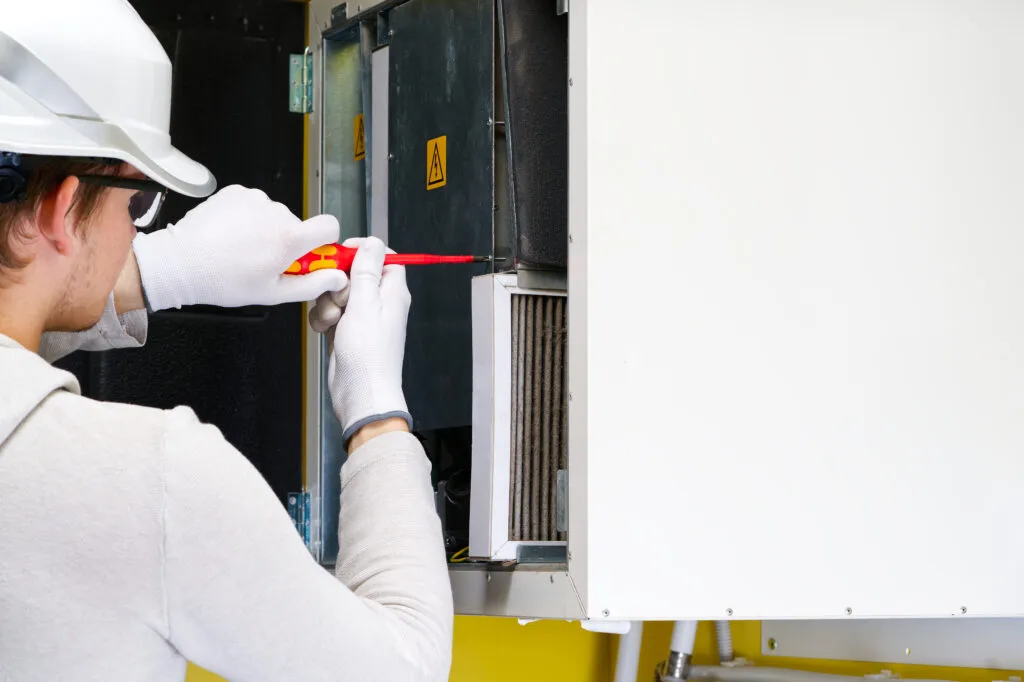
Consequences of Ignoring Replacement
Ignoring the replacement of your air filter can lead to several negative consequences. As mentioned, a clogged filter reduces system efficiency, resulting in higher energy bills. Over time, the increased strain on your HVAC system can lead to costly repairs or even premature system failure.
Additionally, neglecting to replace your air filter can significantly impact indoor air quality. As the filter becomes saturated with particles, it loses its ability to capture new ones, allowing dust, allergens, and other pollutants to circulate throughout your home.
Finally, poor air quality can affect the health and comfort of your household. Prolonged exposure to allergens and pollutants can exacerbate respiratory conditions, cause headaches, and lead to other health issues. Regular filter replacement is a simple yet effective way to maintain a healthy indoor environment.
How to Replace Your Air Filter
Replacing your air filter is a straightforward process that you can do yourself. Here’s a step-by-step guide:
Preparing for Replacement
- Turn Off Your HVAC System: Before you start, ensure your HVAC system is turned off for safety reasons. This prevents any debris from being drawn into the system while the filter is removed.
- Gather Necessary Tools: You might need a screwdriver or similar tool to access the filter compartment, depending on your HVAC system’s design. Having these tools ready will make the process smoother.
- Purchase the Right Filter: Before removing the old filter, ensure you have a replacement that matches the size and type. Check the old filter or your system’s manual for specifications.
Removing the Old Filter
- Locate the Air Filter: Air filters are typically located in the return air duct or the air handler. Check your HVAC system’s manual if you’re unsure. The filter is usually housed in a rectangular slot that can be accessed easily.
- Carefully Slide Out the Old Filter: Take note of the size and type for purchasing a replacement. Pay attention to the direction of airflow indicated on the filter, as this is important when installing the new one.
- Inspect the Compartment: Before inserting the new filter, inspect the filter compartment for dust or debris. A quick clean can ensure optimal performance of the new filter.
Installing the New Filter
- Insert the New Filter: Slide the new filter into place, ensuring it’s facing the correct direction (indicated by arrows on the filter frame). Proper orientation is crucial for efficient filtration.
- Secure the Filter: If your system has a filter cover or holder, ensure it is securely fastened. This prevents the filter from moving out of place during operation.
- Turn Your System Back On: Once the new filter is in place, turn your HVAC system back on and enjoy clean air. Monitor the system for a few minutes to ensure everything is functioning correctly.
Post-Replacement Tips
After replacing the filter, take a few moments to note the date of replacement. Keeping a log can help you track when it’s time for the next replacement. Additionally, regularly check the filter for signs of dirt and debris, especially during high-use periods.
If you notice any issues with your HVAC system after replacing the filter, such as unusual noises or reduced airflow, it may be worth consulting a professional to ensure everything is in order. Proper filter maintenance is just one aspect of comprehensive HVAC care.
Where to Buy Replacement Filters
Finding the right replacement filter is crucial for maintaining your HVAC system’s efficiency. Here are some options:
Local HVAC Suppliers
Local HVAC suppliers often carry a wide range of filters, including HEPA and purifier filters. Visiting a local supplier allows you to speak directly with knowledgeable staff who can assist in selecting the right filter for your needs.
Shopping locally also supports your community and provides the opportunity to see and compare different filter types in person. Many suppliers offer additional services, such as installation or maintenance advice, which can be valuable resources for homeowners.
Building a relationship with a local supplier can also provide benefits in the long term, such as exclusive deals or priority service during peak seasons. This can be particularly advantageous if you rely heavily on your HVAC system throughout the year.
Online Retailers
Websites like Amazon and Home Depot offer a wide range of air filters, often at competitive prices. Online shopping provides the convenience of comparing multiple brands and models from the comfort of your home.
Many online retailers offer customer reviews and ratings, which can provide insights into the performance and reliability of different filters. This information can be invaluable in making an informed purchasing decision.
When buying online, be sure to double-check the size and specifications of the filter to ensure compatibility with your HVAC system. Online retailers often provide detailed product descriptions and specifications, making it easier to find the right match.
Professional HVAC Services
At LC Heating and Air Conditioning, we can help you find and install the right filter for your system. Call us at (818) 858-7080 for assistance. Our professional services include evaluating your system’s needs and recommending the most suitable filter options.
Choosing professional services ensures that you receive expert advice and high-quality products. Our team is experienced in handling various HVAC systems and can provide tailored solutions to meet your specific requirements.
In addition to filter replacement, we offer comprehensive HVAC maintenance services to keep your system running efficiently. Regular professional maintenance can prevent issues before they arise and ensure the longevity of your HVAC system.
Maintenance Tips for Your Air Filter
Regular maintenance can extend the life of your air filter and improve your HVAC system’s performance. Here are some tips:
Routine Inspections
- Check Your Filter Monthly: Even if you don’t need to replace it every month, it’s a good idea to check your filter regularly for signs of wear and tear. Routine inspections help catch issues early and ensure your system is operating efficiently.
- Monitor System Performance: Pay attention to your HVAC system’s performance. If you notice any changes in airflow or efficiency, check the filter as a potential cause. Early detection can prevent more significant problems down the line.
- Keep a Replacement Schedule: Maintaining a regular replacement schedule helps ensure your filter is always in optimal condition. Mark your calendar or set reminders to stay on top of filter maintenance.
Cleaning and Maintenance
- Clean Around the Filter: Dust and debris can accumulate around the filter, so be sure to clean the surrounding area regularly. A clean environment helps the filter function more effectively and reduces the risk of clogging.
- Vacuum the Filter Compartment: Occasionally vacuuming the filter compartment can remove any loose dust or debris. This simple step can improve airflow and system efficiency.
- Inspect Other Components: While focusing on the filter, take a moment to inspect other components of your HVAC system. Ensure that vents and ducts are clean and free from obstructions for optimal performance.
Consider Upgrading
- Consider Upgrading: If you find yourself replacing filters frequently, it might be worth investing in a higher-quality filter that lasts longer. Higher-quality filters often offer better filtration and can improve indoor air quality.
- Consult with a Professional: If you’re unsure about upgrading, consult with an HVAC professional. They can provide recommendations based on your system’s needs and your specific air quality concerns.
- Evaluate Filter Options: Explore different filter options and compare their benefits. HEPA filters, activated carbon filters, and others offer various levels of filtration and efficiency. Choose the one that best suits your environment and health requirements.
Conclusion: Tips for Your Air Filter
Maintaining your air filter is essential for ensuring the efficiency of your HVAC system and the quality of air in your home or office. By following these tips, you can extend the life of your filter and enjoy cleaner air. And remember, if you ever need a professional touch, we’re here to help. Contact LC Heating and Air Conditioning at (818) 858-7080 for all your HVAC needs.
Your comfort and satisfaction are our top priorities, and we’re committed to providing you with the best service possible. Stay cool, stay warm, and breathe easy with a well-maintained air filter. Regular maintenance not only enhances system efficiency but also contributes to a healthier living environment for you and your loved ones.
Following maintenance tips for your air filter — including regular inspection, timely replacement, and proper cleaning — keeps your system efficient, your air cleaner, and your energy bills lower. Simple routine care makes a big difference in performance and comfort.
FAQ:
How often should I check my air filter?
You should inspect your air filter monthly, especially during peak HVAC use seasons (summer and winter), to ensure it isn’t clogged or restricted.
How often do air filters need to be replaced or cleaned?
Most disposable filters need replacing every 1–3 months, while washable/reusable filters should be cleaned according to the manufacturer’s recommendations — often every 1–3 months as well.
How can I tell if an air filter needs maintenance?
Visible dirt, dust buildup, restricted airflow, and increased HVAC noise or energy use are all signs it’s time to clean or replace your air filter.
Does the type of air filter affect how often I maintain it?
Yes — higher-efficiency filters (like HEPA or pleated types) may last longer between changes, while basic fiberglass filters may need more frequent replacement.
Can maintaining my air filter improve indoor air quality?
Absolutely — clean filters trap more dust, allergens, and pollutants, helping improve the air you breathe and reducing respiratory irritation for occupants.
What are simple at-home maintenance tips for filters?
Regularly vacuuming around vents, keeping return grilles clean, sealing gaps around filters, and following a consistent replacement schedule all help your filter work better for longer.

